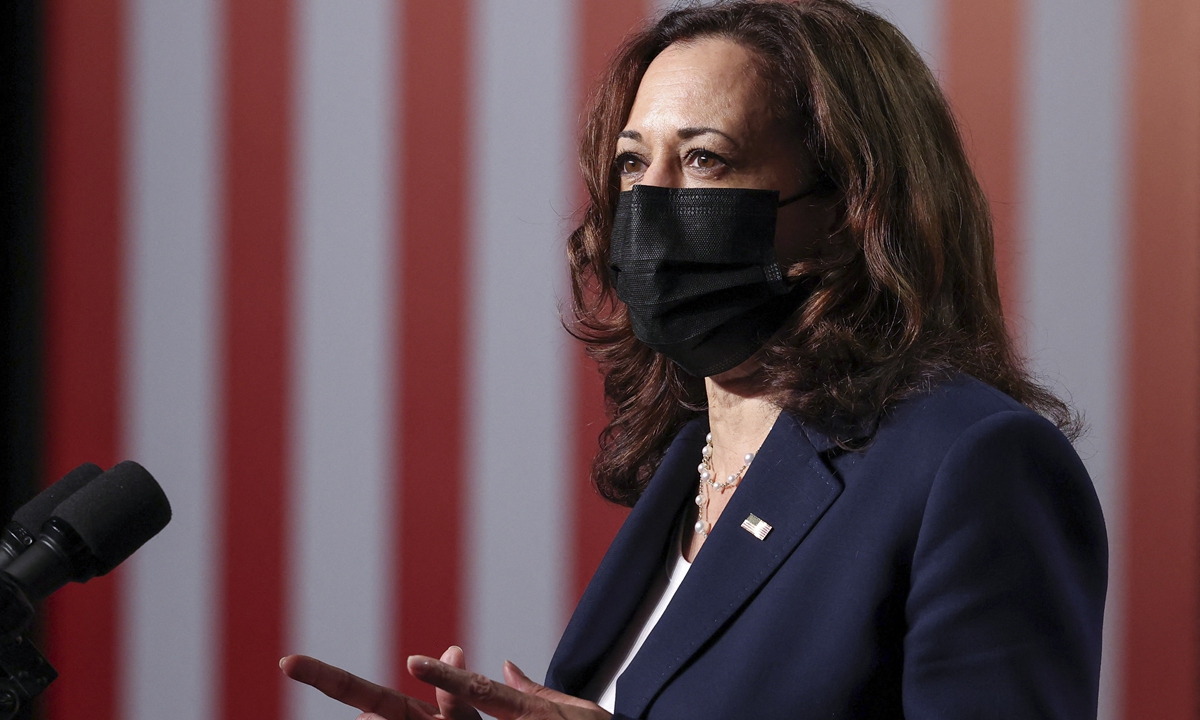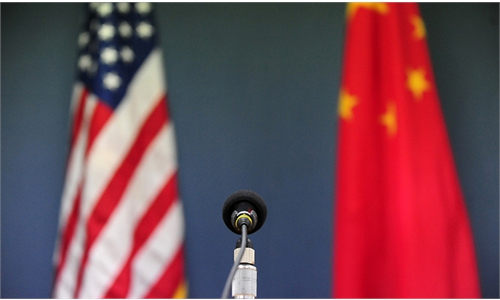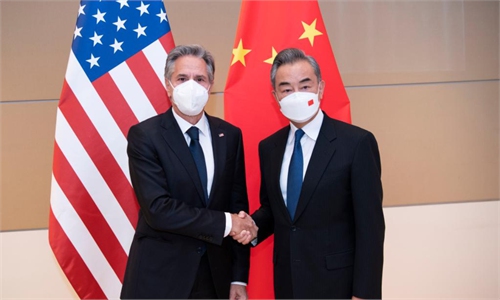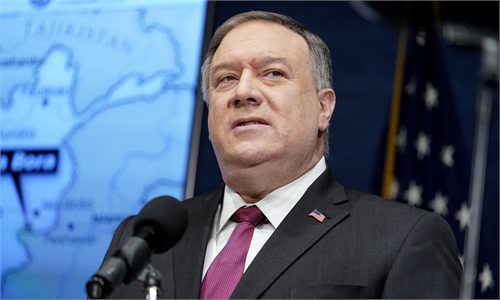Harris' visit to Japan, S.Korea expected to further escalate tensions in Taiwan Straits, Korean Peninsula: observers

US Vice President Kamala Harris delivers remarks during the official launch of the CDC Southeast Asia Regional Office in Hanoi on August 25, 2021.?Photo:AFP
With the US' so-called Indo-Pacific Strategy getting more aggressive, countries in Asia including China and North Korea appear on high alert ahead of US Vice President Kamala Harris' first official visit to Japan and South Korea in the wake of what is called a fourth instance in which President Joe Biden committed to defending the island of Taiwan from a "potential attack" from the Chinese mainland.
Chinese observers believe this trip aims to boost the US' collusion with its two Asian allies and is very likely to further provoke on the Taiwan question and the Korean Peninsula issue.
However, it is apparently a hard task for the US vice president to bond Japan and South Korea more tightly to make them act as pawns altogether under the US' strategy in the region, given the mistrust between the two Asian countries and the divergences between the US and Japan, and between the US and South Korea, observers pointed out.
Harris, leading a delegation, is scheduled on Sunday to kick off her first official visit to Japan and South Korea since taking office. It will last until Thursday, according to the AP.
The Japan Times revealed that final arrangements are being made for Prime Minister Fumio Kishida and Harris to hold talks and dine together in Tokyo on Monday, the eve of a Japanese state funeral for former Prime Minister Shinzo Abe. The talks are expected to last 30 minutes. Kishida aims to strengthen ties with the country's defense ally and advance their shared goal of a "free and open Indo-Pacific" in the face of increasing Chinese influence in the region, the report cited sources as saying.
Harris is also expected to inspect troops at the US Navy base in Yokosuka, southwest of Tokyo, on Wednesday.
Taking the state funeral as a significant opportunity for so-called funeral diplomacy, the US and Japan are likely to enhance their alliance in various fields including the economy and trade, and on regional and global hot issues such as the Ukraine crisis and the so-called China threat, a Beijing-based expert on international relations who requested anonymity told the Global Times on Sunday.
But the US-Japan alliance essentially is a military alliance and they are likely to enhance military cooperation and stir up troubles on the Taiwan question, the expert noted.
Biden said in his speech at the United Nation General Assembly on Wednesday that the US remains "committed to its one China policy," though just a few days ago Biden said again US troops will "defend Taiwan" if China makes an "unprecedented attack."
Japan, as the most important ally who follows closely under the US' Indo-Pacific Strategy, is being used by the US to shoulder more costs and "responsibilities" on the Taiwan question, which would escalate tensions in the Taiwan Straits, the expert warned.
On the other hand, the US' other ally South Korea, which is due to be the next destination during Harris' Asia trip, has its own calculations, observers said.
In South Korea, Harris will meet with President Yoon Suk-yeol to "underscore the power of the US-South Korea alliance and talk about the menace posed by North Korea, the significance of peace and stability throughout the Taiwan Straits, the rising financial and know-how partnership, and a variety of regional and international points," Asia Today reported on Saturday.
North Korea fired a ballistic missile toward the sea off its east coast on Sunday, ahead of planned military drills by South Korean and US forces involving an aircraft carrier, and Harris' trip, CNBC reported.
Both the upcoming military drills and Harris' visit to South Korea will pose a great threat and provocation to North Korea and the ballistic missile launch is likely to be a warning signal from North Korea, Lü Chao, an expert on the Korean Peninsula issues at the Liaoning Academy of Social Sciences, told the Global Times on Sunday.
Harris' trip will undoubtedly bring more tension, confrontation and danger to the Asia-Pacific region, the expert noted.
However, while the US is constantly brokering the relationship between its two allies, South Korea has repeatedly emphasized independence in its own diplomacy and has long-term mistrust with Japan, Lü said.
The US is eager to tie South Korea to its Indo-Pacific Strategy, coerce South Korea to play more of a pawn role in the region, and further force the latter to choose a side against China, which does not conform to South Korea's own independent diplomacy and the Asian country's strategic security, the expert said. This is one of the main divergences between the US and South Korea, he added.
While South Korea wants a stable peninsula which is important to its security and prosperity, the US wants a peninsula constantly under tension so it can wheedle South Korea into being at its beck and call, the Beijing-based anonymous expert said. "This is the fundamental difference," the expert noted.
All the divergences between the US and its allies come from their unequal relationship, observers pointed out.
Seoul's discontent toward such an unequal alliance is widely believed to have been exposed during a recent meeting between Yoon and Biden at the Global Fund's Seventh Replenishment Conference in New York City on Wednesday.
Yoon was caught on a hot mic and seen on camera seemingly calling US lawmakers a Korean word that can be translated as "idiots" or something much stronger, the Washington Post reported.
Although Yoon's spokesperson has denied Yoon insulted the US Congress in remarks made after meeting Biden in New York, many people in South Korea were unconvinced by the government's defense - an opposition South Korean lawmaker said it was like telling South Koreans they were "hearing impaired," said media report.




